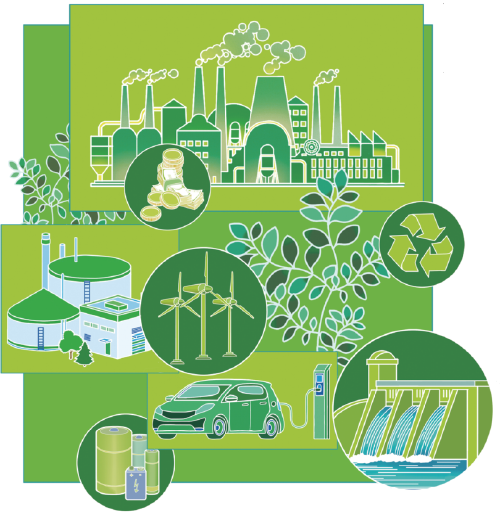More public finance and private capital must be devoted to realizing the low carbon transition
Climate 'moonshot' needs fueling
December 27, 2022

We stand at a critical moment in history. Global mean temperature in 2022 is currently estimated to be around 1.2 C above the pre-industrial levels. According to the World Meteorological Organization Provisional State of the Global Climate 2022 report, the past eight years were on track to be the eight warmest on record, fueled by ever-rising greenhouse gas concentrations and accumulated heat. Extreme heat waves, drought and devastating flooding have affected millions of people and cost billions of dollars this year.
The most recent Intergovernmental Panel on Climate Change report shows that around 40 percent of humanity lives in areas that are already highly vulnerable to climate change. The situation has been further exacerbated globally by the COVID-19 pandemic and conflicts, pushing 163 million people back into poverty, and severely impacting livelihoods through an ongoing cost-of-living crisis experienced in most regions of the world. Both humanity and the planet's ecosystems are being pushed to the brink.
In responding to these challenges, the 2030 Agenda for Sustainable Development and the 17 Sustainable Development Goals adopted by all Member States of the United Nations in 2015 remain our common roadmap to chart a course to a green, just and inclusive future.
Yet, with only eight years left to fulfill the 2030 Agenda, time is running out. To realize the large-scale interventions required to collectively mitigate and adapt to climate change and achieve the SDGs, finance is essential. The challenge is not necessarily a lack of resources — we live in a world with $1.54 quadrillion in assets. The real issue is where and how the money is invested.
We need to redirect financial resources to where they are needed most — human development, the SDGs and climate commitments. The United Nations Environment Programme estimated that adaptation costs alone faced by just developing countries will be in a range of $160 billion to $340 billion per year by 2030, and $315 billion to $565 billion annually by 2050.
Fortunately, the business case for sustainable development is stronger than ever: Shifting to a green economy could yield a direct economic gain of $26 trillion through 2030 compared to business-as-usual. Achieving the SDGs by 2030 would open $12 trillion of global business opportunities.
To capitalize on these opportunities, there must be coordinated and urgent actions from governments, businesses and multilateral organizations worldwide. In particular, I'd like to highlight three areas:
First, we need to strengthen fiscal planning and budget reforms to better align public finance with climate pledges and the SDGs.
Second, we need to unlock private capital for the SDGs, building an enabling environment that directs more capital and innovation toward the SDGs. Data, SDG-aligned standards, and monitoring and reporting are the key to scale up.
Third, we need to foster cooperation to address multidimensional crises, including to bridge financial and technological gaps, address debt risks and boost transparency and accountability.
China is well-positioned to contribute to accelerating the low carbon transition. It has made efforts to advance low carbon technology, and sustainable finance, rising to be among the top issuers in green bonds globally and recording the fastest growth rate in its green bond market among major economies last year. According to the Climate Bond Initiative, annual issuance of green bonds in China more than doubled in 2021 compared to the previous year reaching $109.5 billion.
Building on this momentum, we continue to call on countries and partners to join the United Nations Development Programme in its $1 trillion "moonshot" target to help mobilize game-changing public and private sector resources toward the 2030 Agenda for Sustainable Development.
Together, we can build a better, more sustainable world that leaves no one behind, and safeguards the future of both people and the planet.
Author: Usha Rao-Monari, secretary-general of the United Nations and associate administrator of the United Nations Development Programme
Published in China Daily

 Locations
Locations